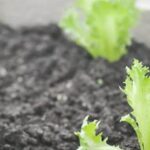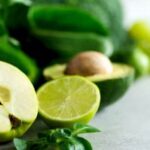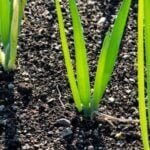Are you looking for the best and cheapest garden fertilizer for vegetables? Many gardeners understand the importance of using fertilizer to ensure their plants receive the necessary nutrients for healthy growth and abundant yields. In this article, we will explore the benefits of using fertilizer in a vegetable garden, discuss different types of fertilizers, and provide insights on how to choose the right option for your specific garden needs.
Using fertilizer in a vegetable garden offers numerous benefits that can significantly impact the overall health and productivity of your plants. Not only does it boost plant growth and yield, but it also helps improve soil fertility by replenishing essential nutrients. Additionally, proper fertilization is key to preventing nutrient deficiencies that could hinder the development of your vegetable crops.
When it comes to selecting the right fertilizer for your vegetable garden, there are diverse options to consider. Organic fertilizers such as compost, manure, and fish emulsion offer natural solutions that promote soil health and sustainability. On the other hand, synthetic fertilizers provide concentrated doses of nutrients for quicker plant absorption. Understanding the differences between these types of fertilizers is crucial in making an informed decision for your garden.
Benefits of Using Fertilizer
Fertilizers play a crucial role in ensuring the health and productivity of vegetable gardens. They provide essential nutrients that are necessary for plant growth, development, and overall well-being. By using fertilizers, gardeners can significantly improve the yield of their crops, enhance soil fertility, and prevent nutrient deficiencies that may hinder the growth of vegetables.
One of the primary benefits of using fertilizer in a vegetable garden is the ability to boost plant growth and increase overall yield. With the right combination of essential nutrients such as nitrogen, phosphorus, and potassium, plants are better equipped to grow vigorously and produce an abundant harvest. Fertilizers also aid in improving soil fertility by replenishing important minerals that may have been depleted over time due to continuous cultivation.
In addition to promoting plant growth and enhancing soil fertility, fertilizers also play a crucial role in preventing nutrient deficiencies in vegetable gardens. Adequate levels of nutrients such as iron, magnesium, and calcium are vital for optimal plant health. A balanced fertilizer regimen can help address potential deficiencies and ensure that vegetable plants have access to all the necessary elements for robust growth.
| Benefits | Description |
|---|---|
| Boosting Plant Growth | Fertilizers provide essential nutrients that promote vigorous plant growth and increase overall yield. |
| Improving Soil Fertility | Fertilizers replenish important minerals in the soil, enhancing its fertility for sustained productivity. |
| Preventing Nutrient Deficiencies | A balanced fertilizer regimen helps address potential deficiencies and ensures optimal plant health. |
Types of Fertilizers
When it comes to choosing the right fertilizer for your vegetable garden, one of the first decisions you’ll need to make is whether to use organic or synthetic fertilizers. Organic fertilizers are derived from natural sources such as compost, manure, and bone meal, while synthetic fertilizers are manufactured chemically. Both types have their own set of advantages and disadvantages, so it’s important to understand the differences in order to decide which is best for your garden.
Organic fertilizers are known for their ability to improve soil structure and fertility over time. They also provide slow-release nutrients that can benefit the plants in the long run. On the other hand, synthetic fertilizers are often more readily available to plants and can deliver a quick boost of essential nutrients. However, they may also pose a risk of over-fertilization if not applied correctly.
When deciding which type of fertilizer is best for your garden, consider factors such as your soil’s current nutrient levels, the specific needs of your vegetable plants, and your gardening philosophy. Some gardeners prefer organic fertilizers due to their environmental benefits and long-term soil improvement, while others opt for synthetic options for their immediate results and convenience.
Ultimately, the choice between organic and synthetic fertilizers depends on your individual preferences as a gardener and what will work best for the specific conditions of your vegetable garden. By understanding the differences between these two types of fertilizers, you can make an informed decision that will support the health and growth of your vegetable plants.
| Organic Fertilizer | Synthetic Fertilizer |
|---|---|
| Natural sources (compost, manure) | Manufactured chemically |
| Improves soil fertility over time | Provides quick boost of essential nutrients |
| Slow-release nutrients | Risk of over-fertilization if not applied correctly |
Best Natural Fertilizers for Vegetable Gardens
When it comes to fertilizing a vegetable garden, organic options are often preferred due to their sustainable and environmentally friendly nature. Organic fertilizers not only provide essential nutrients for plant growth but also improve soil structure and promote beneficial microorganisms. Here are some of the best natural fertilizers for vegetable gardens:
- Compost: Compost is a nutrient-rich soil amendment made from organic matter such as kitchen scraps, yard waste, and other biodegradable materials. It improves the overall fertility of the soil, enhances moisture retention, and helps suppress plant diseases. Additionally, compost can be made at home or purchased from local suppliers, making it an easily accessible option for gardeners.
- Manure: Animal manure is another excellent natural fertilizer for vegetable gardens. It contains a variety of essential nutrients like nitrogen, phosphorus, and potassium that are vital for plant growth. However, it’s important to use well-aged manure to prevent burning plants with excessive salts and minimize the risk of harmful pathogens.
- Fish Emulsion: Fish emulsion is derived from processed fish waste and is an excellent source of nitrogen, phosphorus, and trace minerals. It is available in liquid form and is easily absorbed by plants, providing quick nutrition for rapid growth. Fish emulsion can be applied directly to the soil or used as a foliar spray for fast results.
These natural fertilizers not only provide essential nutrients for vegetable plants but also contribute to building healthy soil over time. When used in combination with proper soil management practices, they can significantly enhance the overall productivity and health of a vegetable garden.
Best Synthetic Fertilizers for Vegetable Gardens
When it comes to synthetic fertilizers for vegetable gardens, there are a few options that have proven to be highly effective in promoting plant growth and improving yield. These chemical-based fertilizers are formulated to provide specific nutrients that may be lacking in the soil, ensuring that your vegetables receive everything they need to thrive. While organic fertilizers have their benefits, synthetic options can offer a quick and targeted solution to nutrient deficiencies.
Benefits of Synthetic Fertilizers
One of the main advantages of using synthetic fertilizers in vegetable gardens is their fast-acting nature. These products are designed to release nutrients quickly, allowing plants to absorb them rapidly and show visible improvements in a shorter time frame. Additionally, synthetic fertilizers often have precise formulas that provide a balanced mix of essential nutrients, making it easier to address specific deficiencies in the soil.
Effective Chemical-Based Fertilizer Options
When it comes to choosing the best synthetic fertilizer for your vegetable garden, some popular options stand out. For example, water-soluble fertilizers such as Miracle-Gro or Scotts are known for their ability to deliver essential nutrients directly to the roots of plants.
These products are easy to apply and allow for quick absorption by the vegetables. Another effective option is granular synthetic fertilizer like Osmocote, which provides a slow release of nutrients over an extended period, reducing the frequency of application needed.
Cost-Effective Fertilizers for Vegetable Gardens
When it comes to fertilizing your vegetable garden, finding a balance between quality and budget-friendly options is essential. The cost of fertilizers can add up, especially for larger gardens or for those looking to maintain an organic garden. Luckily, there are several cost-effective options that provide the necessary nutrients for healthy plant growth without breaking the bank.
Some Cost-Effective Fertilizers for Your Vegetable Garden Include
- Compost: Composting kitchen scraps and yard waste is not only environmentally friendly but also provides a nutrient-rich soil amendment for your vegetable garden.
- Manure: Animal manure, such as cow or chicken manure, is a natural and inexpensive way to improve soil fertility and add essential nutrients to your garden.
- Fish Emulsion: This organic fertilizer made from fish byproducts is a great source of nitrogen and other essential nutrients for vegetable plants.
In addition to these organic options, there are also budget-friendly synthetic fertilizers that can provide the necessary nutrients for your vegetable garden without breaking the bank.
Some Affordable Synthetic Fertilizers for Your Vegetable Garden Include
- Granular Fertilizers: These slow-release synthetic fertilizers are cost-effective and provide long-lasting benefits for your plants.
- Liquid Fertilizers: Liquid synthetic fertilizers can be diluted with water, making them an economical option for large gardens.
- Spike Fertilizer: These convenient fertilizer spikes are inserted into the soil around the plant’s roots, providing a budget-friendly option for targeted nutrient delivery.
When selecting cost-effective fertilizers for your vegetable garden, it’s important to consider not only the upfront cost but also the long-term benefits and overall value. With careful consideration and proper application, you can find a fertilizer that meets both your budget and gardening needs.
How to Apply Fertilizer
When it comes to applying fertilizer in a vegetable garden, proper technique is essential to ensure that plants receive the necessary nutrients for optimal growth and yield. The application process can significantly impact the effectiveness of the fertilizer, so it’s important to follow specific steps for best results.
Soil Testing
Before applying any type of fertilizer, it’s crucial to conduct a soil test to determine the current nutrient levels and pH balance. This will help you understand which nutrients are lacking in the soil and how much fertilizer needs to be applied. Soil testing kits are readily available at gardening stores, or you can send a sample to a professional lab for analysis.
Choosing the Right Fertilizer
Based on the results of your soil test, you can select a fertilizer that addresses the specific nutrient deficiencies in your vegetable garden. Whether you choose organic or synthetic fertilizer, make sure to read and follow the manufacturer’s instructions for application rates.
Application Methods
There are several methods for applying fertilizer in a vegetable garden, including broadcasting, banding, or side-dressing. Broadcasting involves spreading the fertilizer evenly over the entire garden area. Banding is placing the fertilizer in trenches alongside rows of crops. Side-dressing involves adding small amounts of fertilizer around individual plants as they grow.
By following these step-by-step instructions for proper application of fertilizer in your vegetable garden, you can maximize its effectiveness and ensure that your plants receive the nutrients they need for healthy growth and bountiful harvests. Remember to always follow recommended dosages and application methods to avoid over-fertilization, which can harm your plants and negatively impact the environment.
Tips for Choosing the Right Fertilizer for Your Specific Vegetable Garden
In conclusion, choosing the best and cheapest fertilizer for your vegetable garden requires careful consideration of various factors such as soil type, plant species, and specific nutrient needs. By understanding the benefits of using fertilizer, gardeners can boost plant growth and yield, improve soil fertility, and prevent nutrient deficiencies. Whether opting for organic or synthetic fertilizers, it is important to weigh the pros and cons of each to make an informed decision based on individual garden requirements.
When it comes to natural fertilizers for vegetable gardens, options like compost, manure, and fish emulsion are excellent choices due to their ability to enrich the soil with essential nutrients. On the other hand, synthetic fertilizers offer quick nutrient release and precise control over nutrient content. Finding a balance between quality and cost-effectiveness is crucial for those looking for affordable yet efficient solutions.
Proper application of fertilizer plays a crucial role in maximizing its effectiveness. Gardeners should follow step-by-step instructions to ensure that plants receive the necessary nutrients without causing harm or imbalance. Ultimately, by considering all relevant factors, including the specific needs of your vegetable garden, you can make an informed decision when selecting the right fertilizer for optimal growth and harvest.
Frequently Asked Questions
What Is the Best Fertilizer for a Vegetable Garden?
The best fertilizer for a vegetable garden depends on the specific needs of the plants and the soil. Generally, organic fertilizers like compost, aged manure, and fish emulsion are great options as they provide a wide range of nutrients and improve soil structure.
Chemical fertilizers can also be used but should be applied carefully to avoid overloading the soil with particular nutrients.
How to Fertilize Garden Cheap?
Fertilizing a garden cheaply can be achieved by using homemade compost, collecting and using grass clippings, or making use of natural sources like coffee grounds, eggshells, or seaweed. Additionally, buying in bulk and using slow-release fertilizers can help save money while effectively nourishing the plants.
What Is the Easiest Way to Fertilize Vegetable Gardens?
The easiest way to fertilize vegetable gardens is through top-dressing with compost or well-rotted manure. By spreading a layer of organic matter over the soil surface around the plants, you can slowly release essential nutrients and improve soil structure without disturbing the roots.
Alternatively, liquid fertilizers or soluble powders can be easily applied with a watering can or hose attachment for quick absorption by the plants’ roots.

If you’re looking to get into vegetable gardening, or are just looking for some tips on how to make your current garden better, then you’ve come to the right place! My name is Ethel and I have been gardening for years. In this blog, I’m going to share with you some of my best tips on how to create a successful vegetable garden.





